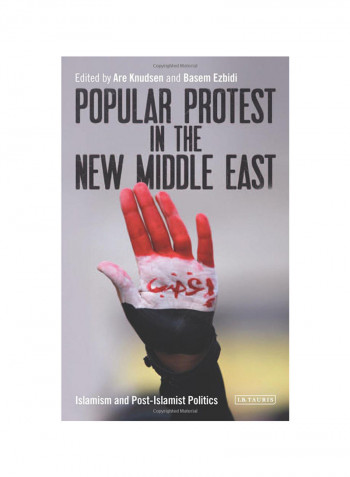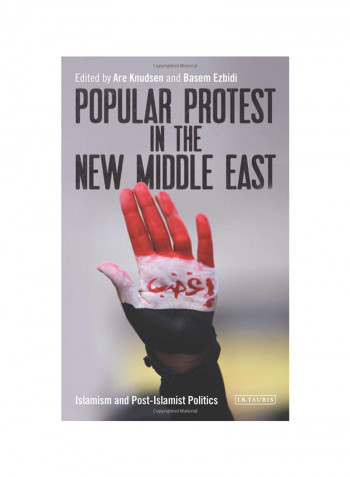Popular Protest In The New Middle East: Islamism And Post-Islamist Politics Hardcover
Recommend
Sort by
Rating
Date
Specifications
Book Description
In the wake of the protests that spread throughout the Middle East and North Africa in late 2010 and early 2011, Islamist movements of varying political persuasions have risen to prominence. This is especially the case in post-Mubarak Egypt and post-Ben Ali Tunisia. Popular Protest in the New Middle East examines Islamist approaches to political participation and integration in the Arab world and asks whether regional trends can be discerned with respect to either the strategy of disparate movements or the challenges they confront in the various states in which they operate. It offers analysis of the ideologies and actions of these movements, ranging from countries where Islamism is in control of the state as an Islamic theocracy (Iran), the ruling party (for example, Turkey), part of the ruling coalition (Lebanon), or a parliamentary minority (such as in Jordan or Yemen). The question of political participation, and by implication integration into existing political systems, has been a significant issue for Islamist movements. Some, opting for the role of a revolutionary vanguard, have rejected the concept of participation outright. Others, particularly those that have developed a broad popular base and operate in states where local or national elections are conducted, have invested heavily in participation, either as a method of achieving political power, or as a means of influencing public policy. This book offers a systematic examination of a variety of examples of the actions of Islamist movements, from those that employ more militant tactics to those that have a more quietist approach. Are Knudsen and Basem Ezbidi bring together an examination of the effects that various experiences of participation and integration have had on the individual movements concerned and the broader Islamist trend throughout the Middle East, making this book vital for researchers of the impact of religion on politics (and, indeed vice versa).
ISBN-10
178076913X
ISBN-13
9.78178E+12
Language
English
Publisher
I.B.Tauris and Co. Ltd.
Publication Date
11/26/2014
Number of Pages
320
About the Author
Are Knudsen is senior researcher at the Christian Michelsen Institute (CMI) in Bergen, Norway and holds a PhD in social anthropology from the University of Bergen. He is scientific coordinator for CMI's research collaboration with the Palestinian Institute for the Study of Democracy (Muwatin), and is the author of Violence and Belonging: Land, Love and Lethal Conflict in the North-West Frontier Province of Pakistan (2010). Basem Ezbidi teaches at the Department of Political Science at Birzeit University. He is the author of The Palestinian Political Culture (2003) and Hamas and Governance: Is Hamas Getting into the System or Rebelling Against It? (2010).
Editor 1
Basem Ezbidi
Editor 2
Are Knudsen
Editorial Review
This welcome volume grapples with the groundswell of protests that reverberated across the Middle East beginning in late 2010, and which will continue to disorient and challenge protagonists for years to come. The authors grapple particularly with the responses of Islamist oppositional groups, and also contemplate the prospects for a post-Islamist future. While the answers are necessarily tentative, Popular Protest in the Middle East offers thoughtful, even original analyses of a variety of important cases. including Egypt, Lebanon, Palestine, Syria, Tunisia and Yemen. Are Knusden's introduction is incisive and valuable in itself, and the contemplative foreword by Asef Bayat is a bonus for readers. Read this book and think through cases with the highly capabale authors. Augustus Richard Norton, Professor, Boston University and Fellow, Oxford Centre for Islamic Studies. This book presents an excellent and much-needed [analysis] for the study of the dynamic phenomenon of Islamism in the wake of the Arab Spring...This volume guides and alerts us to the determination of the new Arab street in Tunisia, Yemen, Egypt, Libya, as well as beyond, and the transient impact they have and can make on power within the state. This book will undoubtedly serve as an essential guide not just in terms of explaining what has passed but what will come to bear in terms of our understanding of this now turbulent region. Knudsen and Ezbidi help readers come to grips with important Islamist and post-Islamist challenges. Beverley Milton-Edwards, Professor of Politics, Queen's University, Belfast



